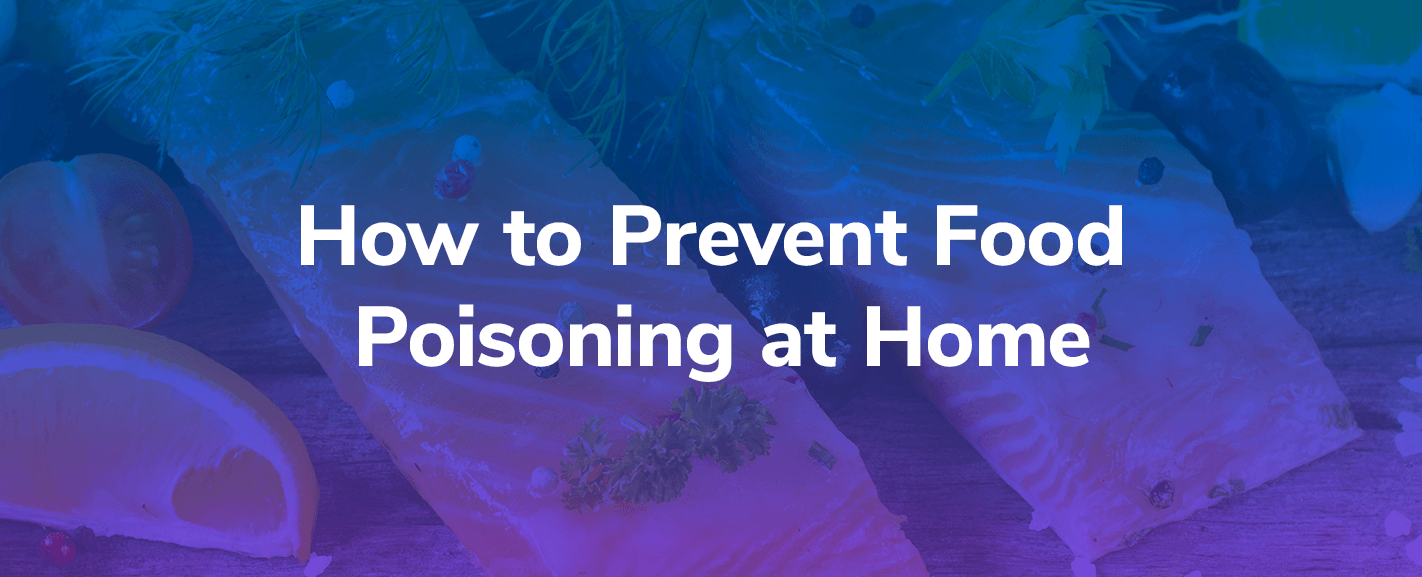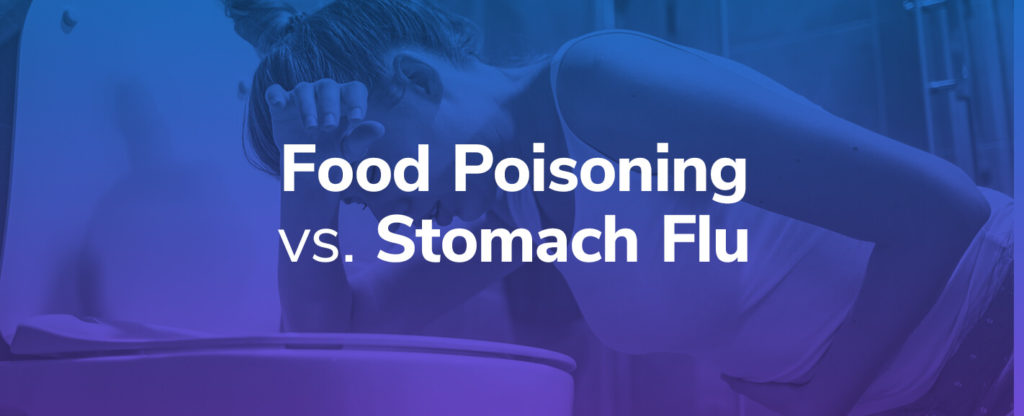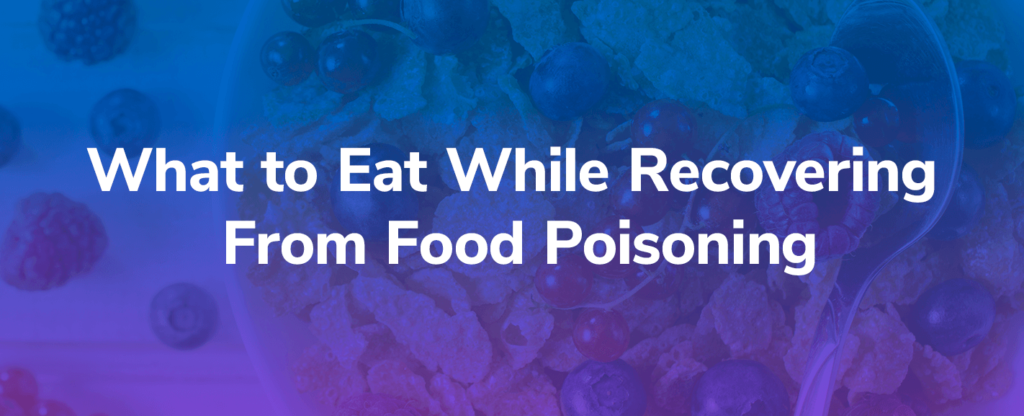Foodborne illness, also known as food poisoning, is common, though preventable. You can get food poisoning after consuming food that has been contaminated with various germs or toxic substances. Approximately 48 million people experience food poisoning yearly, with 3,000 fatal cases, according to the Centers for Disease Control and Prevention (CDC).
Anyone can get food poisoning, though some groups are more likely to experience serious illnesses, including adults over 65, children younger than 5 and people with weaker immune systems. As a result, it’s essential to know how to stop food poisoning before it starts.
Jump Ahead:
How to Avoid Food Poisoning
Fortunately, there are a few ways to prevent food poisoning when cooking at home:
Stay Clean
It’s essential to wash your hands and work surfaces before, during and after cooking. Germs can survive throughout your kitchen, including on utensils, dishcloths, cutting boards, countertops and your hands.
A clean kitchen and hands can keep those illness-causing viruses and bacteria at bay. To keep your hands clean before cooking or eating, wash them with warm, soapy water for at least 20 seconds. Thoroughly clean around the kitchen by mixing 1 teaspoon of household bleach with 1 gallon of water. Place the solution in a spray bottle and use a cloth to sanitize surfaces.
You can eliminate harmful bacteria on produce by rinsing your fruits and vegetables with water and scrubbing them with a produce brush. You should also remove the outer leaves of certain produce items like lettuce and cabbage before eating. However, avoid washing meat, poultry or eggs to prevent bacteria from spreading to other surfaces.
If you have recalled items in your fridge, dispose of them as soon as possible to prevent germs from spreading to other food items. After throwing away the recalled items, clean and sanitize your fridge before returning your original food.
Separate
It’s essential to avoid using the same plates and utensils for raw and cooked foods. Raw meat, poultry and eggs can quickly spread germs to ready-to-eat food if not kept separate. For example, putting a cooked chicken back on the plate it was defrosted on can invite salmonella infection.
Follow these steps to prevent food poisoning at home:
- Always wash plates, utensils, serving dishes and cutting boards thoroughly before using them again.
- Consider using separate cutting boards for produce and meat products to prevent bacteria growth.
- When grocery shopping, keep poultry, raw meat and seafood away from other foods.
- Do not wash poultry, eggs or raw meat, as this can spread germs on your sink or counters.
Cook
When cooking, use a food thermometer to ensure they reach the correct internal temperature to kill harmful bacteria. Whole cuts of beef, pork or lamb should be cooked to 145 degrees F, followed by a three-minute rest period before carving. Ground meats should be cooked to 160 degrees F, while fish should reach an internal temperature of 145 degrees F.
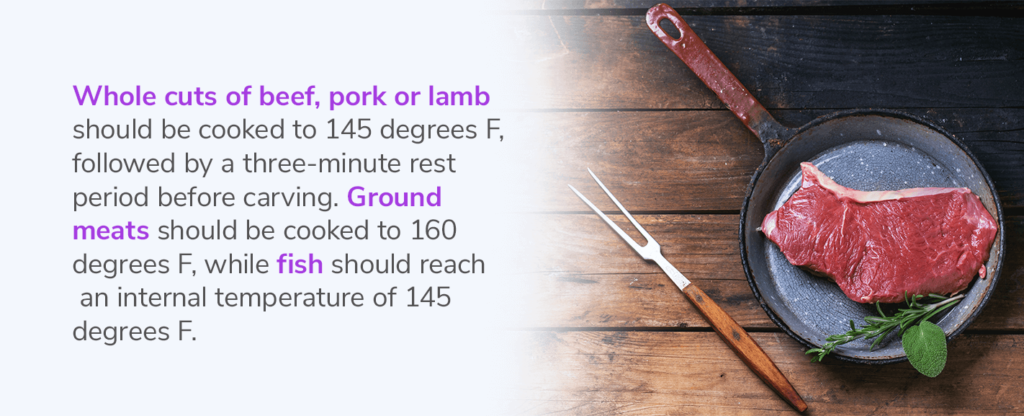
While color and texture can indicate when food is cooked, the safest way to ensure it’s ready to eat is by using a thermometer. When serving food, it’s essential that you keep cooked foods hot and chilled foods cold. Bacteria thrive in warm, moist environments, so ensure you do not keep food out too long. Toss out any food items that stay outside the fridge longer than two hours.
Chill
Another way to prevent food poisoning is to store your food in a fridge at 40 degrees F or below. Refrigerate your leftovers within two hours of cooking or one hour if the food is exposed to a temperature above 90 degrees F.
When storing leftovers, use a resealable, food-grade container. Store raw meat, poultry and seafood in containers separate from other food items to prevent juices from leaking onto them. Use your leftovers within three to four days. When reheating, ensure they reach an internal temperature of at least 165 degrees F to eliminate lingering bacteria.
Defrost
Thaw frozen food safely in the fridge, cold water or the microwave. Never thaw food on the counter since bacteria will multiply quickly in the parts of the food that reach room temperature. Plan time to defrost meat in the fridge since it can take a day or more to thaw. While time-consuming, this is the best way to keep food safe.
When using the cold water method, place the frozen food in a plastic bag and submerge it in cold water. Change the water every 30 minutes until the food has thawed. When using a microwave to defrost food, cook it immediately once thawed. Partially-warmed meat can invite bacteria.
How to Stop Food Poisoning Once it Starts
In most cases, food poisoning symptoms will diminish in a few days, and you can fully recover at home. Symptoms can include nausea, vomiting, diarrhea, stomach cramps, chills and lethargy.
To keep yourself comfortable and prevent dehydration while recovering, try the following home remedies:
- Replace lost fluids: Diarrhea and vomiting can make you lose fluids and electrolytes, making it essential to replace them. Take small sips of water or try drinking clear soda, broth or noncaffeinated sports drink. Oral rehydration solutions can also help with severe dehydration symptoms.
- Let your stomach settle: When sick with food poisoning, you can calm your stomach by avoiding eating for a few hours. Ease into eating by sticking to bland, low fat and easy-to-digest foods like crackers, toast, gelatin, bananas and rice.
- Rest: Food poisoning and dehydration can weaken the body and make you tired. Make a speedy recovery by getting plenty of rest.
While drinking enough water and replacing those fluids can help, sometimes your body cannot replenish them quickly enough. In these cases, a food poisoning intravenous (IV) treatment can effectively rehydrate and revitalize the body while recovering. These treatments will introduce the essential fluids and minerals back to your body to help you recover faster.
While most people can recover from food poisoning at home, see your health provider if:
- Your symptoms are severe.
- You are pregnant.
- You’re over 65 years old.
- You have a weak immune system.
Get Relief From Dehydration
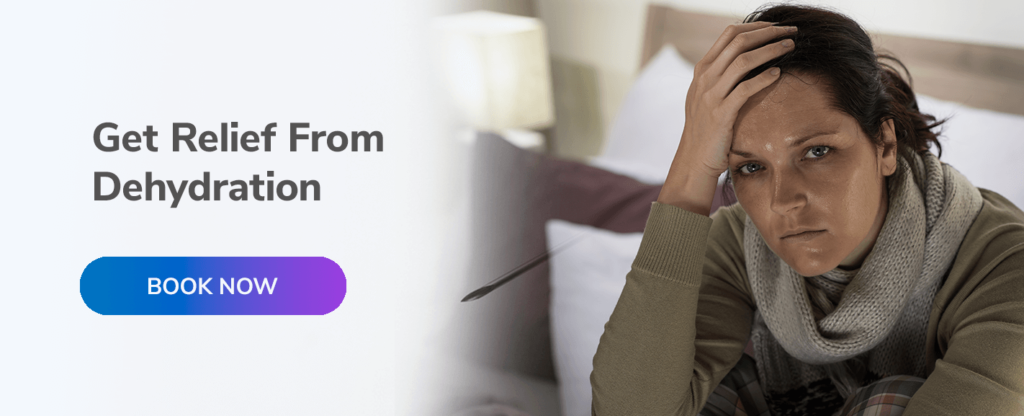
There are many helpful ways to prevent food poisoning and avoid health complications. However, if you find yourself sick, IV treatments can help you recover comfortably and provide relief from dehydration. Mobile IV Medics is a leading provider of innovative IV packages to help you improve your health and various symptoms, including dehydration from food poisoning. When illness has you feeling sick and tired, let us deliver our IV packages directly to your door.
Our popular IV packages include hydration, migraine & headache, energy & focus, hangover and recovery. To schedule an appointment or learn more, contact us today.
